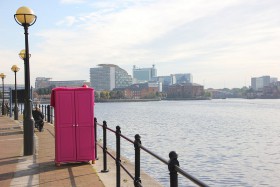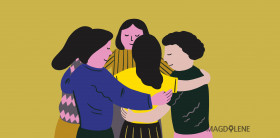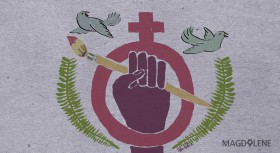Recently, a friend of mine saw a building across from her house catching fire. She tried to call the fire department hotline 112 and the emergency hotline 110, but she was met with voicemails instead. Though fire trucks did eventually arrive, the fact that the two hotline numbers were not reachable when help was crucially needed is a worrying sign.
Indonesia actually has a lot of government services hotlines, from general emergency to suicide, help is, supposedly, only one call away. However, there are two problems with these hotlines: firstly, almost nobody knows about them; and, secondly, they do not always work.
These two are very serious problems.
Emergency hotlines are important. They are the concrete form of the government’s social contract to its people. In a situation where a citizen cannot ask for another’s help or is in dire danger, such as in a robbery or gas explosion, these government’s hotlines are supposed to connect us to immediate aid. The capability to dial these hotlines is probably the thin line separating life and death.
These services also enable the government to review the progress and needs of the communities through data collected from reports and complaints. For example, in an area where robbery is often reported, the government can provide additional police forces or conduct further investigation. The hotlines give insights to the government in a unique way, as the information comes directly from the community and not through representatives. Hypothetically, it will, in turn, allow the government to continually improve its public services.
But none of these is possible if the hotlines are not known. The concept of hotlines is vastly unrecognized by public. In an interview conducted for the research of this writing, roughly 70 percent of the respondents did not know the national emergency hotline or the local emergency numbers. Almost all children respondents did not even know what a hotline is. This proves that these hotlines are not publicized properly to attract the interest of the public.
Considering that they are made to serve people, more efforts should be made to raise awareness on the numbers, so that the vast majority will be able to know and use them properly. In the United States, for example, the number 911 and its function have been introduced to kindergarten children and repeated up until high school. Information on it is also vastly disseminated in public service announcements and national advertisements. To know this hotline is mandatory, so that the citizens can access it when they need to.
In Indonesia, most people would have to resort to Google to find out the emergency hotlines. Ironically, Google, a multi-national company that does not even originate in Indonesia, does a better job at informing its people than the government.
But even if people knew the hotline numbers, they are still faced with an even bigger problem: the hotlines don’t always work, as my friend’s experience has shown.
Some of the hotlines are no longer functioning, despite the urgency for it. The suicide hotline 500-454 is a prime example. Aiming to provide emergency assistance to people with suicidal tendencies and other mental problems, it was initiated and publicized in 2011. However the service has been discontinued, although severe mental illness is currently a rising problem in Indonesia.
The distinctive characteristics of a government’s emergency hotline is constant availability, so people can reach it in any circumstance. With private cellular operators boasting their signal strengths, why not build cooperation and utilize accessibility? What’s the point of making something for your people, if it ends up unusable?
Simply creating a hotline is not going to work without proper dissemination and constant availability. The Indonesian government should pay more consideration in maximizing the service they have provided, in order to create better service and protection for its citizens.







Comments